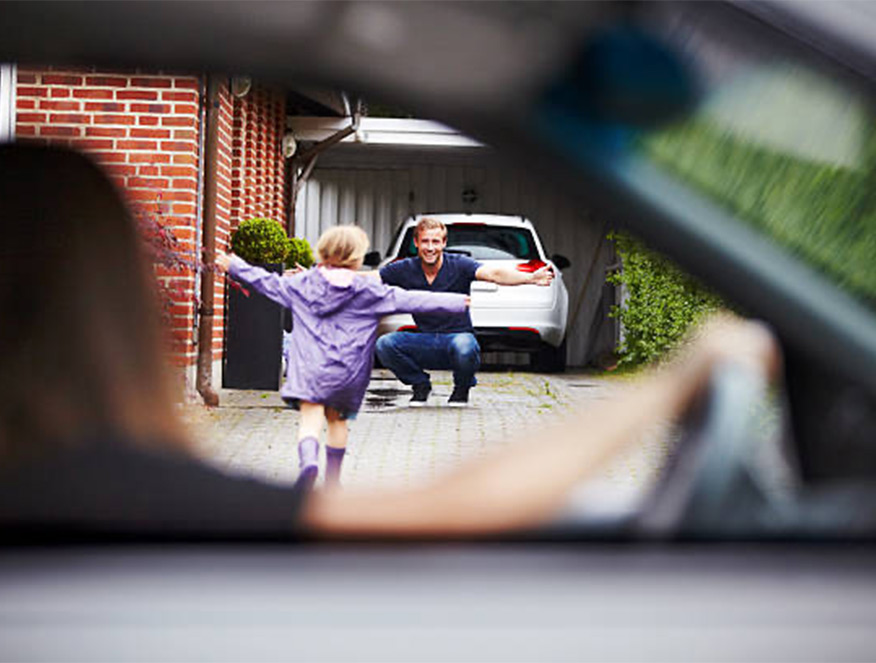
Support through life’s toughest decisions.
What is Divorce Counselling?
Divorce is more than just a legal process—it’s an emotional journey that reshapes your life, identity, and future. The end of a marriage often brings grief, anger, guilt, and uncertainty. Even when separation feels like the right choice, navigating the emotional and practical complexities can be overwhelming. You may find yourself doubting your decision, wondering how to move forward, protect your well-being, and make choices that serve both your needs and those of your children.
At Incontact, we provide a safe, supportive space to process these emotions and make informed decisions about co-parenting, finances, and your next steps. We recognise that no two divorces are the same, and we help you explore the unique adjustments and arrangements that work best for your situation. With compassion and guidance, we support you in healing and rebuilding at your own pace.
Issues addressed in Divorce Counselling
- Emotional distress
- Grief and loss
- Conflict resolution
- Co-parenting challenges
- Communication breakdown
- Trust and betrayal
- Decision-making anxiety
- Children’s emotional well-being
- Self-esteem and identity shifts
- Legal and financial stress
- Managing family and social pressures
- Setting boundaries
- Adjusting to life post-divorce

Discernment Counselling or Divorce Counselling: Which one do you need?
If you are unsure whether to stay in your marriage or separate, Discernment Counselling may be the right first step. It is for couples where one or both partners feel uncertain about the future of their relationship. Instead of jumping straight into divorce, discernment counselling helps you explore whether your marriage can be repaired or if separation is truly the best path forward.
Divorce counselling, on the other hand, is for individuals or couples who have already decided to separate and need support navigating the emotional, practical, and relational challenges that come with it.

Co-parenting with stability and care
Divorce can be especially challenging when children are involved, as they may experience confusion, sadness, or anxiety about the changes ahead. How parents navigate this transition can significantly impact their emotional well-being.
At Incontact, we help parents develop co-parenting strategies that foster stability, respectful communication, and emotional security for children.
Understanding the stages of grief in divorce
Denial
At first, it may feel difficult to acknowledge the reality of divorce. Denial often appears even if you're the one initiating the process, as you might avoid confronting the emotions tied to the end of your marriage.
Anger
As denial fades, intense emotions such as anger, fear, and hurt can take over. Anger often masks deeper feelings and can spur you to make important life changes. However, unmanaged anger can complicate the divorce further.
Bargaining
This stage often involves attempts to reconcile or avoid the finality of divorce. You may engage in discussions like seeking therapy or making promises in hopes of fixing the relationship, but these attempts often fail to change the inevitable.
Depression
Sadness and regret follow as the realisation of the loss sets in. Depression marks the beginning of acceptance, and it’s crucial to have support during this time to help you navigate the pain and begin to embrace change.
Acceptance
The final stage involves coming to terms with the divorce and embracing your new life. You may feel empowered, focused on personal growth, and ready to make plans for your future with clarity and purpose.
Divorce Counselling at Incontact
Processing emotional grief
Divorce brings a wave of emotions—grief, anger, sadness, or even relief. Our counselling sessions provide a safe space to express and process these feelings, helping you navigate the emotional pain and find a sense of balance as you move forward.
Adjusting to life changes
Separation affects multiple aspects of life, from living arrangements to daily routines and social circles. We guide you in adapting to these shifts, helping you rebuild stability, confidence, and a renewed sense of self.
Co-parenting support
For parents, divorce is not just an end but a transition into a new form of partnership. We help you navigate co-parenting challenges, improve communication with your ex-spouse, and prioritise your child’s well-being.
Reducing conflict and stress
High-conflict divorces can take an emotional toll on everyone involved. We offer tools and strategies to manage disputes, set healthy boundaries, and create a more cooperative post-divorce dynamic.
Rebuilding self-identity
Divorce can shake your sense of identity, especially after a long-term relationship. We help you rediscover your values, strengths, and aspirations, empowering you to build a fulfilling life beyond the divorce.
Handling legal and practical stress
While not a legal service, our counselling can help you emotionally prepare for legal proceedings, financial decisions, and custody arrangements, ensuring you make informed, clear-headed choices.
Creating a positive future
Healing from divorce isn’t just about closure—it’s about embracing new beginnings. We support you in setting goals, forming healthy relationships, and cultivating resilience for the next chapter of your life.
FAQ
Divorce counselling is for individuals or couples who have already decided to separate. If you’re feeling overwhelmed by emotions or unsure how to move forward, it might be the right time to seek support.
Discernment counselling helps couples who are uncertain about the future of their relationship, while divorce counselling is for those who have already decided to separate and need support navigating that process.
If you’re undecided about divorce, Discernment Counselling may be a better fit. However, if you’re struggling with the emotional aftermath of the decision, divorce counselling can still provide valuable support.
Grief, anger, guilt, and confusion are common during divorce. Divorce counselling offers a safe space to process these feelings, helping you manage emotional ups and downs as you move forward.
It’s normal to feel uncertain about co-parenting after a divorce. Our counselling helps you build the emotional resilience needed to transition to co-parenting, even when you’re not yet fully ready.
Discussing divorce with children requires care and understanding. We guide parents on how to communicate effectively with their children, ensuring emotional security and minimising confusion or anxiety.
Divorce often leads to shifts in self-identity. Our counselling services support you in rediscovering your values, strengths, and purpose, helping you regain confidence and direction in your life.
Anger can persist long after the divorce is final. In counselling, we explore the root causes of your anger, offering strategies to manage it effectively and prevent it from interfering with your personal growth or relationships.
While divorce counselling doesn't address legal or financial advice directly, we help you manage the emotional toll of financial decisions and assist in creating a mindset for making clear, informed choices.
Yes. Divorce counselling is designed to help you heal emotionally, gain clarity about your next steps, and embrace the opportunity to create a new, fulfilling future.













